Everything you read on the website about individualized care is a lie. I met with my counselor 1 time individually and 3 times in a small group setting. Further, when I questioned my counselor about this as I was upset, Shannon my counselor, (the clinical Director non the le ...
About St. Joseph’s Institute
The majority of the clientele at this leading inpatient treatment facility tend to be in midlife to elderly. Therapy is created on an individual basis with very little group therapy so age doesn’t tend to be an issue in personal comfort throughout the treatment process.
This is a residential treatment program with medical detoxification being the first phase of treatment. Most clients stay in residential treatment for 30 days. Treatment is about giving each client a personal relationship with God, helping them learn to love themselves, and showing them how to develop the tools and strength to succeed in a mentally healthier life free from addiction.
Above and beyond addiction treatment, St. Joseph Institute treats mood and personality disorders, depression, PTSD, chronic pain, anxiety, bipolar disorder, complicated grief and more mental health conditions along with addiction and substance use disorder (SUD) issues.
Unlike most treatment models, St. Joseph Institute has few group therapy sessions within individual treatment. This is so that each individual can get to the heart and soul of their own struggles and build the tools that they need for their own journey through life.
There are peer support programs, but the majority of treatment is spent on the individual person’s addiction and mental health issues, rather than listening to the collective deal with their past and present issues. Clients will be introduced to the 12-step program philosophies and support system while in treatment.
Family and community support are essential when overcoming addiction and dealing with mental health struggles. That is why family therapy and support is an important part of the treatment process here.
St. Joseph Institute is considered in-network for many health insurance companies, such as Blue Shield/Blue Cross. The Institute’s admission staff will help you arrange insurance and time off work with short-term disability if you have such benefits at work. You must verify with your personal health insurance provider what benefits you have. They’ll tell you whether coverage is full or if you are financially responsible for any of the costs of treatment.
Latest Reviews
Rehab Score
Gallery
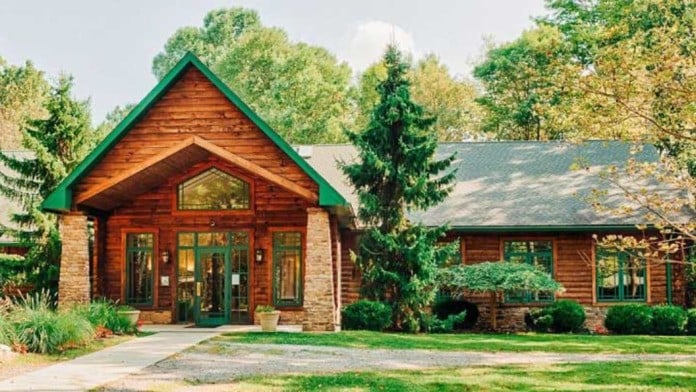

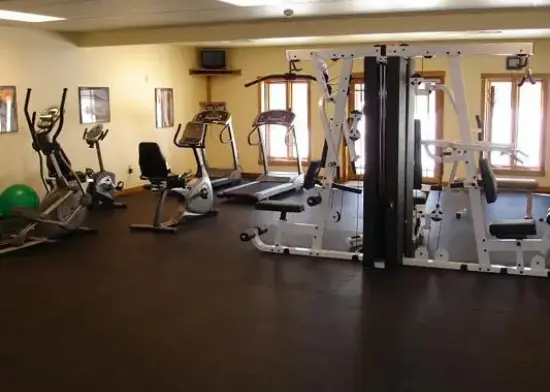

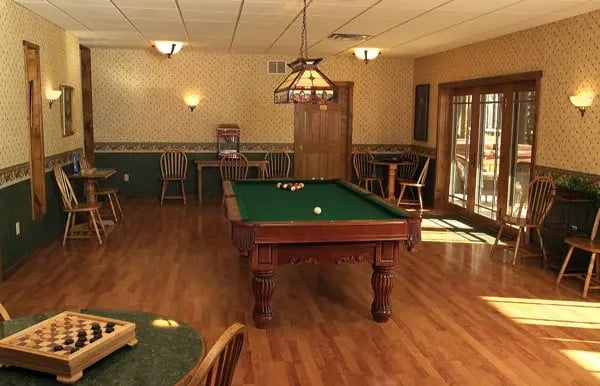



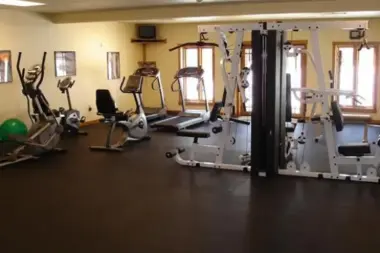

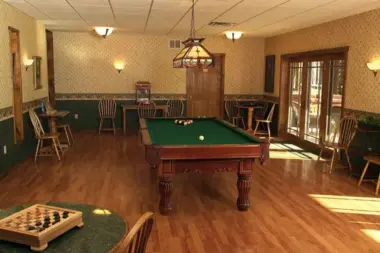

Accepted Insurance


Other Forms of Payment
Private insurance refers to any kind of healthcare coverage that isn't from the state or federal government. This includes individual and family plans offered by an employer or purchased from the Insurance Marketplace. Every plan will have different requirements and out of pocket costs so be sure to get the full details before you start treatment.
Self-pay involves paying for treatment out of your own pocket. You can use savings or credit, get a personal loan, or receive help from family and friends to fund your treatment. If you don't have insurance or your insurance plan doesn't cover a specific program, self-pay can help ensure you still get the care you need.
Sliding scale payments are based on a client's income and family size. The goal is to make treatment affordable to everyone. By taking these factors into account, addiction recovery care providers help ensure that your treatment does not become a financial burden to you or your family, eliminating one barrier to care.
Medicare is a federal program that provides health insurance for those 65 and older. It also serves people under 65 with chronic and disabling health challenges. To use Medicare for addiction treatment you need to find a program that accepts Medicare and is in network with your plan. Out of pocket costs and preauthorization requirements vary, so always check with your provider.
Military members, veterans, and eligible dependents have access to specific insurance programs that help them get the care they need. TRICARE and VA insurance can help you access low cost or no cost addiction and mental health treatment. Programs that accept military insurance often have targeted treatment focused on the unique challenges military members, veterans, and their families face.
Medicaid is a state based program that helps lower-income individuals and families pay for healthcare. Medicaid covers addiction treatment so those enrolled can use their coverage to pay for rehab. When a program accepts Medicaid the client often pays very little or nothing out of their own pocket.
Financing your treatment can make treatment more accessible. You'll work with your care provider to set up payment plans, including interest rates and repayment timelines. Financing options vary widely and not all programs offer them, so be sure to get the full details before enrolling in treatment. If you have insurance or other benefits, financing may help you cover your remaining out of pocket expenses.
Addiction Treatments
Levels of Care
Residential treatment programs are those that offer housing and meals in addition to substance abuse treatment. Rehab facilities that offer residential treatment allow patients to focus solely on recovery, in an environment totally separate from their lives. Some rehab centers specialize in short-term residential treatment (a few days to a week or two), while others solely provide treatment on a long-term basis (several weeks to months). Some offer both, and tailor treatment to the patient's individual requirements.
Intensive Outpatient Programs (IOP) are for those who want or need a very structured treatment program but who also wish to live at home and continue with certain responsibilities (such as work or school). IOP substance abuse treatment programs vary in duration and intensity, and certain outpatient rehab centers will offer individualized treatment programs.
Clients receiving services from a rehab aftercare program are usually stable and in the maintenance phase of recovery, having completed detox and/or intensive inpatient treatment. Rehab aftercare services can vary widely based on clients' individual and evolving needs, but often include peer coaching, relapse prevention support, 12 step program induction, and medical, mental health, and social service referrals. Individual care plans are typically developed by the client in partnership with their case manager and care team.
The objective of our residential treatment center is to introduce residents to the benefits of participating in 12-Step programs for alcohol & drug abuse support such as Alcoholics Anonymous (AA) and Narcotics Anonymous (NA). 12-step programs are addiction recovery models based on Alcoholics Anonymous (AA). Twelve-step groups assume an active role in the process of recovery, and in so doing, address three dimensions of the human person: physical, mental and spiritual.
A partial hospitalization program (PHP) is a short-term form of intensive rehab, usually for those with acute symptoms that are hard to manage but don’t require 24-hour care. PHPs have structured programming (i.e. individual and/or group therapy), and usually meet 3-5 days a week for around 6 hours (i.e. 9am-3m). Some PHPs are residential (patients sleep on site) and some are not, so patients sleep at home. PHPs can last from 1-6 months, and some offer transportation and meals.
At certain points in the recovery process, it's important to have support available 24/7. 24-hour clinical care offers a safe environment in which to recover from drug or alcohol addiction in peace, knowing medical detox and other treatment will happen with professionals on hand.
The objective of their rehab center in Pennsylvania The comfortable, relaxed setting helps their residents move quickly through their detox process with minimal discomfort. Carefully supervised by their medical team and Medical Director who is Board Certified in Addiction Medicine, they use a combination of medications and natural treatments that are fast, safe and effective.
Outpatient rehabs specialize in providing comprehensive care for clients who choose to remain in their homes and communities during treatment. Their services may include transitional support for clients stepping down from intensive inpatient programming. Ambulatory medical detox may be provided for clients at low risk for withdrawal complications. Many programs include evening, night, and weekend services to accommodate clients who are working professionals or caregivers. Addiction counseling and life skills training are common treatment modalities.
Treatments
The goal of treatment for alcoholism is abstinence. Those with poor social support, poor motivation, or psychiatric disorders tend to relapse within a few years of treatment. For these people, success is measured by longer periods of abstinence, reduced use of alcohol, better health, and improved social functioning. Recovery and Maintenance are usually based on 12 step programs and AA meetings.
Drug rehab in Pennsylvania is devoted to the treatment of addiction. Levels of care, treatment methods, and settings differ, but the aim of each program is to end drug dependency and empower participants to achieve long-term recovery.
The objective of their dual diagnosis treatment is to discover the needs of the person as a whole, believing that drug and alcohol addiction is often a symptom of one or more underlying problems. There may be wounds that are in need of healing or skills that need to be learned. The goals of their alcohol & drug addiction center are to identify any co-occurring disorders and address dual diagnosis treatment, whether on a physical or a psychological level.
A combined mental health and substance abuse rehab has the staff and resources available to handle individuals with both mental health and substance abuse issues. It can be challenging to determine where a specific symptom stems from (a mental health issue or an issue related to substance abuse), so mental health and substance abuse professionals are helpful in detangling symptoms and keeping treatment on track.
Opioid rehabs specialize in supporting those recovering from opioid addiction. They treat those suffering from addiction to illegal opioids like heroin, as well as prescription drugs like oxycodone. These centers typically combine both physical as well as mental and emotional support to help stop addiction. Physical support often includes medical detox and subsequent medical support (including medication), and mental support includes in-depth therapy to address the underlying causes of addiction.
In Pennsylvania, substance abuse treatment programs can help address addiction and any co-occurring mental health problems. These programs incorporate evidence-based therapies such as cognitive-behavioral therapy (CBT), dialectical behavior therapy (DBT), and psychoeducation to help you uncover the underlying causes for your substance use and develop new skills to help you manage stress and overcome future triggers which may challenge your sobriety.
If you have a mental health condition and an addiction, it is critical to address both conditions simultaneously. If you only address the mental health disorder, you'll likely continue to use drugs or alcohol, which can make your mental health issues even worse. On the other hand, if you only address the addiction, you won't have the tools to cope with your mental health disorder in a healthy way.
Programs
Adult rehab programs include therapies tailored to each client's specific needs, goals, and recovery progress. They are tailored to the specific challenges adult clients may face, including family and work pressures and commitments. From inpatient and residential treatment to various levels of outpatient services, there are many options available. Some facilities also help adults work through co-occurring conditions, like anxiety, that can accompany addiction.
Young adulthood can be an exciting, yet difficult, time of transition. Individuals in their late teens to mid-20s face unique stressors related to school, jobs, families, and social circles, which can lead to a rise in substance use. Rehab centers with dedicated young adult programs will include activities and amenities that cater to this age group, with an emphasis on specialized counseling, peer socialization, and ongoing aftercare.
Serving in the military is both mentally and physically challenging, and can result in trauma that persists even after combat ends. Military programs are tailored to the specific and often complex needs of active duty personnel, veterans, and military families. Clients often access these programs through the U.S. Department of Veterans Affairs (VA).
Clinical Services
Cognitive Behavioral Therapy (CBT) is a therapy modality that focuses on the relationship between one's thoughts, feelings, and behaviors. It is used to establish and allow for healthy responses to thoughts and feelings (instead of unhealthy responses, like using drugs or alcohol). CBT has been proven effective for recovering addicts of all kinds, and is used to strengthen a patient's own self-awareness and ability to self-regulate. CBT allows individuals to monitor their own emotional state, become more adept at communicating with others, and manage stress without needing to engage in substance abuse.
Dialectical Behavior Therapy (DBT) is a modified form of Cognitive Behavioral Therapy (CBT), a treatment designed to help people understand and ultimately affect the relationship between their thoughts, feelings, and behaviors. DBT is often used for individuals who struggle with self-harm behaviors, such as self-mutilation (cutting) and suicidal thoughts, urges, or attempts. It has been proven clinically effective for those who struggle with out-of-control emotions and mental health illnesses like Borderline Personality Disorder.
Group Counseling for those addicted to alcohol & drugs provides a social setting in which residents can become mindful of, and work toward improving important skills. These include patterns of connecting with others, learning to communicate effectively, making healthy decisions, solving problems and resolving conflicts in a group setting. Group addiction counseling provides an opportunity to form a cohesive whole and work with others to achieve goals that are beneficial to each person and the group.
Individual Counseling, for those addicted to alcohol & drugs focuses on identifying and building up inherent strengths, while recognizing, accepting and correcting weaknesses. As this process progresses, the “true self” is revealed and the “false self” is dismantled. Areas of focus include emotion regulation, behavior modification and cognitive functioning, pertaining to beliefs, thoughts, attitudes and rules about life.
Motivational Interviewing (MI) is a clinical approach to helping people with substance abuse issues and other conditions shift behavior in positive ways. It is more goal-oriented than traditional psychotherapy, as MI counselors directly attempt to get clients to consider making behavioral change (rather than wait for them to come to conclusions themselves). Its primary purpose is to resolve ambivalence and help clients become able to make healthy choices freely.
Trauma therapy addresses traumatic incidents from a client's past that are likely affecting their present-day experience. Trauma is often one of the primary triggers and potential causes of addiction, and can stem from child sexual abuse, domestic violence, having a parent with a mental illness, losing one or both parents at a young age, teenage or adult sexual assault, or any number of other factors. The purpose of trauma therapy is to allow a patient to process trauma and move through and past it, with the help of trained and compassionate mental health professionals.
Whether a marriage or other committed relationship, an intimate partnership is one of the most important aspects of a person's life. Drug and alcohol addiction affects both members of a couple in deep and meaningful ways, as does rehab and recovery. Couples therapy and other couples-focused treatment programs are significant parts of exploring triggers of addiction, as well as learning how to build healthy patterns to support ongoing sobriety.
The Family or Marital Counseling program provides an opportunity to address the most significant relationships in a person’s life. Marital or Family addiction counseling offers a safe space to practice relating to significant others in new and better ways. Participants learn to appreciate and grow through their differences as they practice effectively using Critical Life Skills such as communication, decision making, problem solving and conflict resolution.
Life skills trainings involve all the skills a person must have in order to function successfully in the world. These include time management, career guidance, money management, and effective communication. Truly successful addiction recovery is based on the ability to not only live substance-free, but to thrive. Life skills teaches the practical necessities of functioning in society, which sets clients up for success in life, and therefore sobriety.
Nutritional therapy is a state-of-the-art treatment that focuses on brain chemistry and regaining your health and strength. Drugs and alcohol affect the body’s ability to absorb and use essential nutrients that are critical to the production of neurotransmitters – the molecules used by the brain to transmit messages and balance moods. For example, opiate users often have trouble sleeping -- which may be related to low levels of serotonin. Nutritional therapy helps the brain rebuild its supply of serotonin, and sleep improves.
Incorporating recreational therapy into drug and alcohol addiction programs in Pennsylvania helps you rebuild your life and maintain sobriety by discovering new interests and developing healthy coping mechanisms. Recreational activities can include painting, team sports, and hiking to promote physical and mental health.
Nicotine Replacement Therapy (NRT) is a way of getting nicotine into the bloodstream without smoking. It uses products that supply low doses of nicotine to help people stop smoking. The goal of therapy is to cut down on cravings for nicotine and ease the symptoms of nicotine withdrawal.
Amenities
-
Private Transportation
-
Gym
-
Yoga Studio
-
Spa
-
Walking Trails
-
Basketball Court
Staff & Accreditations
Staff

Cindi S. Coffman, BA, CADC, CCS
CEO

Shannon Pasch-Fleck, MA, CADC, CCTS-I
Director of Clinical Services

Heather Swank, LPN
Director of Nursing
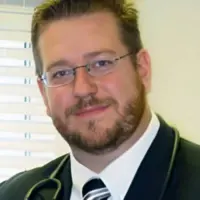
Brandon Roscoe, MD
Medical Director

Hope, CCO
Chief Comfort Officer
Accreditations

The Commission on Accreditation of Rehabilitation Facilities (CARF) is a non-profit organization that specifically accredits rehab organizations. Founded in 1966, CARF's, mission is to help service providers like rehab facilities maintain high standards of care.
CARF Accreditation: Yes
Accreditation Number: 243151

The National Association of Addiction Treatment Providers (NAATP) is a professional association that represents organizations in the field of addiction services. Founded in 1978, NAATP's mission is to advance addiction services and ensure that high-quality addiction treatment is available and accessible.
NAATP Member: Yes
Member ID: 515

The Substance Abuse and Mental Health Services Administration (SAMHSA) is a branch of the U.S. Department of Health and Human Services. Established in 1992 by congress, SAMHSA's mission is to reduce the impact of substance abuse and mental illness on American's communities.
SAMHSA Listed: Yes

State Licenses are permits issued by government agencies that allow rehab organizations to conduct business legally within a certain geographical area. Typically, the kind of program a rehab facility offers, along with its physical location, determines which licenses are required to operate legally.
State License: Pennsylvania
License Number: 22BS6601

The Joint Commission, formerly known as JCAHO, is a nonprofit organization that accredits rehab organizations and programs. Founded in 1951, the Joint Commision's mission is to improve the quality of patient care and demonstrating the quality of patient care.
Joint Commission Accreditation: Yes
Contact Information
134 Jacobs Way
Port Matilda, PA 16870








